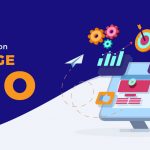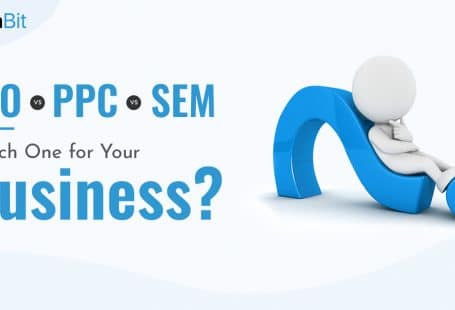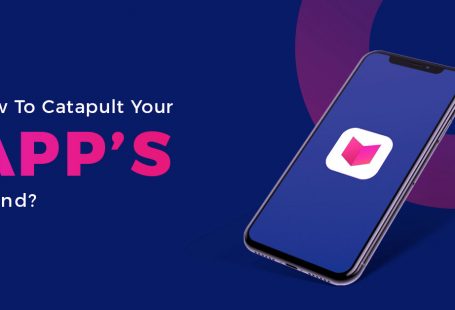What you think about yourself and how you present yourself is one thing, and how others think and talk about you is another. On-page SEO is more about the former and Off-page SEO is more about the latter.
So the idea should be to create content that intrigues people to an extent that they share it and link it with their content. This is the best way to achieve your Off-page SEO goals.
Just imagine there are hundreds of links from valuable sources that point toward your content. Google will obviously think that you have got some quality and relevant information to share with people. In return, it will give good rankings to your pages. Your pages might rank on the first page itself.
Therefore, creating user-centric and meaningful content is the basis of Off-page SEO. Otherwise, who would link to it?
What is Off-Page SEO?
Off-Page SEO refers to activities that are done away from your website, and that affects your rankings. You may not have control over such activities all the time.
For instance, someone might like one of your write-ups or a webpage or an infographic, and they might link them to one of their pages.
Things that are in your control include writing a guest post for another blog and providing a relevant link to one of your webpages. Leaving a comment on other’s blogs also counts as an off-page site promotion.
How to Get Relevant, Authority and User-Friendly Backlinks
Incredible numbers of searches are made on Google every month, and we don’t even need data for this. We just know it’s true.
A bulk part of those searches (more than half of those searches) is done from mobile devices.
Now how many of those searches can lead people to your website, even when they don’t search for a keyword that defines your business?
The answer to this depends on the number of quality backlinks you create. The word “quality” is really important here.
When Google sees a link which points towards your website, it considers the following questions:
- What is the domain authority of the source site?
- How fresh is the link?
- How organic is the link placement?
- How natural is your link profile?
So you just can’t randomly build links to your site. You must focus on relevant, authority-rich, and SEO friendly links.
Here are some of the ways to get quality backlinks for your website.
Broken link building
Guest blogging is good, and people do it prolifically as well. But broken link building is better.
There is a lot of “waiting time” that comes along with guest blogging. First, you have to research for a hot topic, then you have to write an elaborative piece because those are the kind of write-ups that popular third-party platforms prefer.
Once you are done writing, you have to submit the write-up and wait for their approval, which can take months as well. On the other hand, broken link building is much easier and quicker than guest blogging.
But what exactly are broken links?
Broken links are the links that lead readers to webpages that no longer exist. Broken link building tactic comprises four simple steps:
- Find a relevant website and do a backlink analysis
- Search for a broken link
- Once found, contact the website’s owner
- Let them know about their broken link
Mostly, the owners return the favor by providing you a backlink. Therefore, it’s a win-win situation. you can also hire best SEO company for increasing your visibility in SERP.
Creating and marketing well-researched infographics
Infographics have worked and always will, but of course the right ones. Ones who are rightly targeted.
You can acquire authority links, attract the right kind of audience, and even grow your email contacts.
You must read about WordStream and the infographic they created. It helped them fetch a backlink from CNN. Obviously it brought them a lot of traffic because of that.
Visual marketing works both for B2B and B2C campaigns. You can either summarize your content using a well-made infographic, or you can add more informative value to your content using it.
As per HubSpot, when the human brain encounters visual content, it processes information 60,000x faster. Therefore, your potential customers will respond better to your write-up, let’s say a case study if it will have an infographic.
Moreover, people are more comfortable sharing an infographic on their social media handles than a long winding write-up. And more an infographic is shared, more organic traffic it generates for the “source blog”.
As per various studies, infographics generate around 30% more backlinks than conventional blogs. Needless to mention, infographics should be your top “link building” tactic.
The downside of backlinking and how you can avoid Google penalties
It’s not that you can get away with any kind of link building tactic. Google does penalize for unnatural links. So backlinking is important for getting your web pages ranked on Google, but only if the quality of links is unquestionable. Otherwise, it will affect your rankings for the worse.
Links have the strongest impact on search rankings, and most bloggers will vouch for that.
Be it the top brands or small businesses, they are all into external link building. As per the data provided by MarketingSherpa, 59% of companies use external link building to get better rankings on Google’s SERPs.
But you should remain relevant to the requirements of Google if you want to avoid their penalties. For example, links from PR sites don’t interest Google anymore, therefore they no more play a significant role in getting you better rankings.
Google is now more interested in User’s intent and how much value a piece of content provides. It’s not much about the search phrases, but about the purpose behind using that phrase.
For off-page SEO, you can do is to diversify anchor texts
Once you know where your links are coming from, you should work towards diversifying your anchor texts. It means that you need to use different key phrases or even generic terms at times so that your links appear organic to Google and not
Diversifying your anchor texts simply means using different keyword phrases, brand names, and generic terms so that Google will view your links as natural and not fishy.
Your links shouldn’t have the same keywords in the anchor texts (if you haven’t done anything fishy).
Your anchor text should be relevant. It should complement the information provided on the referring page and on your page as well.
But providing anchor texts is not always in your control, as anyone can like your article and link it with one of their write-ups without you knowing it.
So when things are in your control, you better use your brand name as the anchor text and not any of your service.
Hope you liked this write-up. We will be discussing more Off-page SEO in the upcoming articles. You can read our write-ups on On-page SEO here. Do share your views and queries in the comment section.





